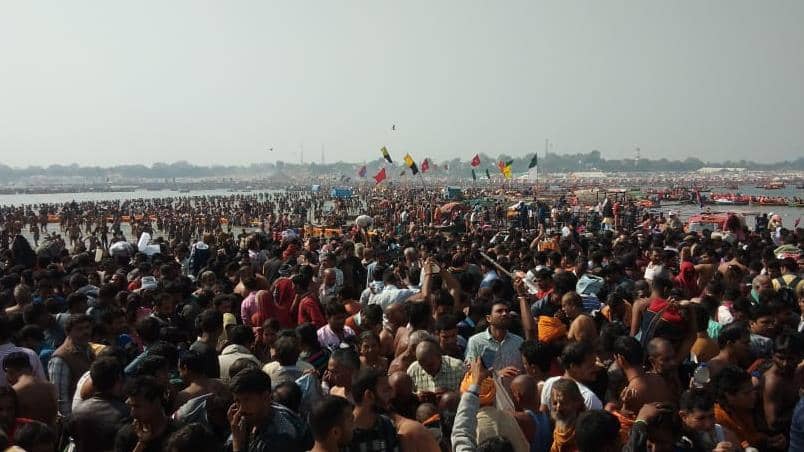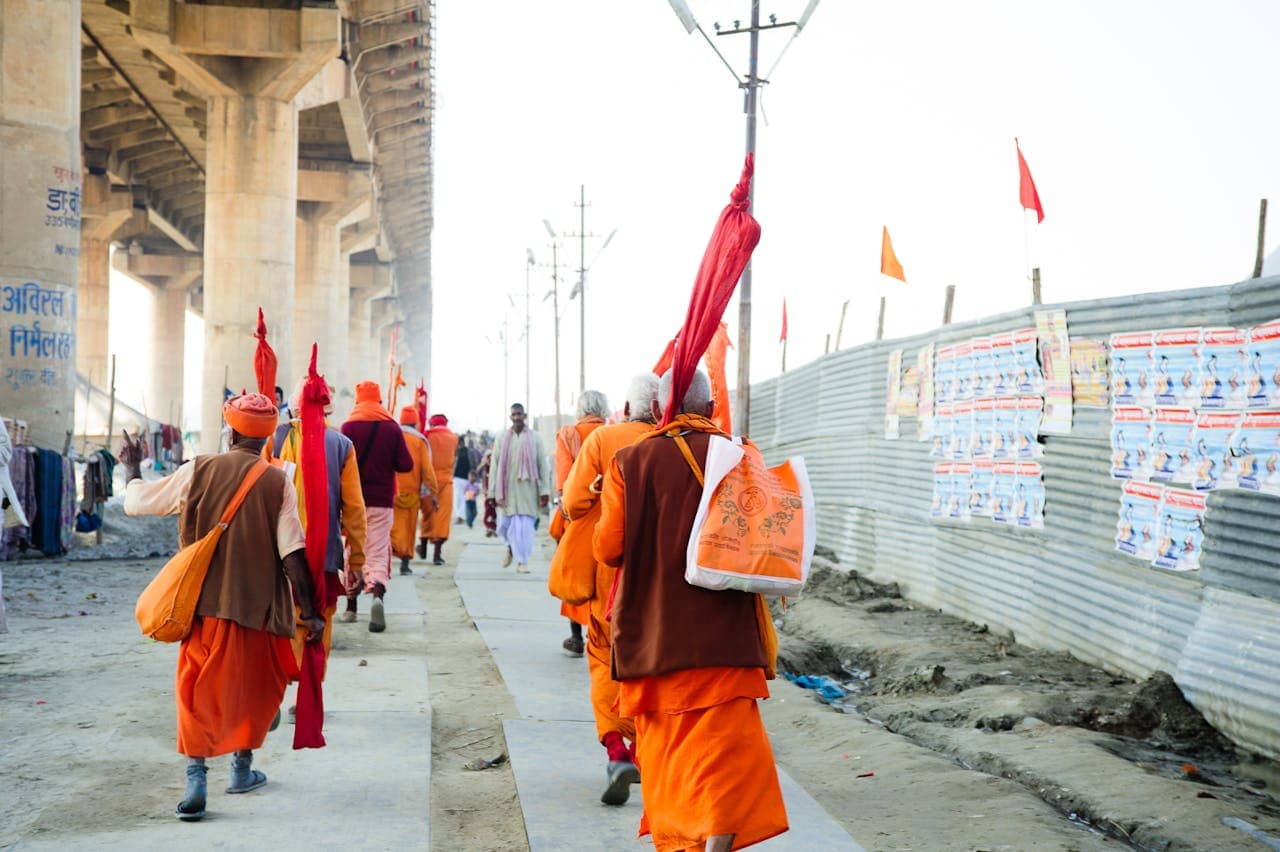While the cosmic battle for the Amrit forms the mythological foundation of the Kumbh Mela, the festival itself transcends its literal origin story. It embodies a rich tapestry of symbolism, timeless traditions, and potent themes that resonate deeply within the human psyche, far beyond its specific religious context. Let’s dive into the deeper meanings embedded within this extraordinary phenomenon.
Enduring Symbolism: The Eternal Quest Within
The Kumbh Mela, and its central legend, can be interpreted as a powerful metaphor for the internal struggles and spiritual aspirations common to the human experience:
- The Amrit: More Than an Elixir The Amrit, the coveted nectar of immortality, can be seen as a symbol of spiritual liberation, enlightenment, and transcendence of the cycle of life and death. The Kumbh Mela thus becomes an outward manifestation of the eternal human yearning for an encounter with the divine and the pursuit of a higher state of being.
- Churning the Ocean: Reflecting Inner Turmoil The Samudra Manthan, the act of churning the ocean, can be likened to the inner turmoil, the constant push and pull between positive and negative forces, that each individual experiences. The struggle between the Devas and Asuras mirrors our own battles against vices like greed, ego, and delusion.
- Quest for Spiritual Purification: The act of pilgrims immersing themselves in the holy waters during the Kumbh Mela reflects a profound desire for inner cleansing. It symbolizes the washing away of past sins, negative karma, and the pursuit of a renewed, spiritually purified self.
- Overcoming Inner Demons: The victory over the Asuras, despite their temporary possession of the Amrit, can represent the ultimate triumph of good over evil, both in the cosmic context and within the realm of the individual spirit.
A Celebration of Resilience and Shared Purpose
Beyond its individual symbolism, the Kumbh Mela stands as a testament to the collective spirit of humanity and its enduring capacity for unity and resilience.
- A Shared Pursuit: Despite the mythical conflict underlying the event, the Kumbh Mela ultimately signifies the coming together of countless individuals, bound by a common spiritual yearning. It reinforces the underlying truth that regardless of external differences, the quest for the divine resides within us all.
- Harmony in Diversity: The Kumbh accommodates a breathtaking diversity of spiritual lineages, philosophies, and expressions of faith, yet there’s a sense of underlying harmony. It’s a microcosm reflecting India’s extraordinary ability to celebrate multiplicity.
- Triumph of the Human Spirit: The sheer scale and the unwavering devotion displayed by millions of pilgrims highlight the resilience and the unyielding nature of the human spirit to overcome worldly obstacles in pursuit of that which they hold sacred.
Timeless Traditions: Anchored in Ancient Heritage
The rituals and practices observed during the Kumbh Mela have been transmitted across generations, forging a tangible link between the present and India’s deep spiritual past.
- Reverence for Rivers: The inherent sanctity ascribed to rivers like the Ganges, Yamuna, Kshipra, and Godavari in Hindu tradition is exemplified by the reverence they receive during the Kumbh Mela.
- Ritual Immersion: The act of ritual bathing in sacred waters during auspicious moments is a practice with roots in antiquity, drawing upon Vedic concepts of purification and renewal. The Kumbh epitomizes this timeless tradition on a magnificent scale.
- Ascetic Practices: The presence of the Akharas, and their adherence to ancient ascetic practices, provides a living connection to India’s rich heritage of renunciation and spiritual seeking. The rituals, initiations, and Shahi Snans of the various orders carry forth traditions passed down through millennia.
- Oral Transmission of Knowledge: The Kumbh Mela isn’t just about rituals, it also facilitates the transmission of spiritual knowledge. Religious discourses, devotional chanting, and the gathering of saints from various lineages create opportunities to preserve and disseminate ancient wisdom and philosophy.
While the Kumbh Mela finds its genesis in Hindu mythology, its symbolism, profound themes of unity, and the continuation of age-old traditions give it a universality that speaks to the core of the human experience. Whether viewed through the lens of spiritual yearning, cultural exploration, or simply a testament to human will, the Kumbh Mela stands as an extraordinary phenomenon, reminding us of the timeless search for meaning and the profound connections that transcend boundaries.


